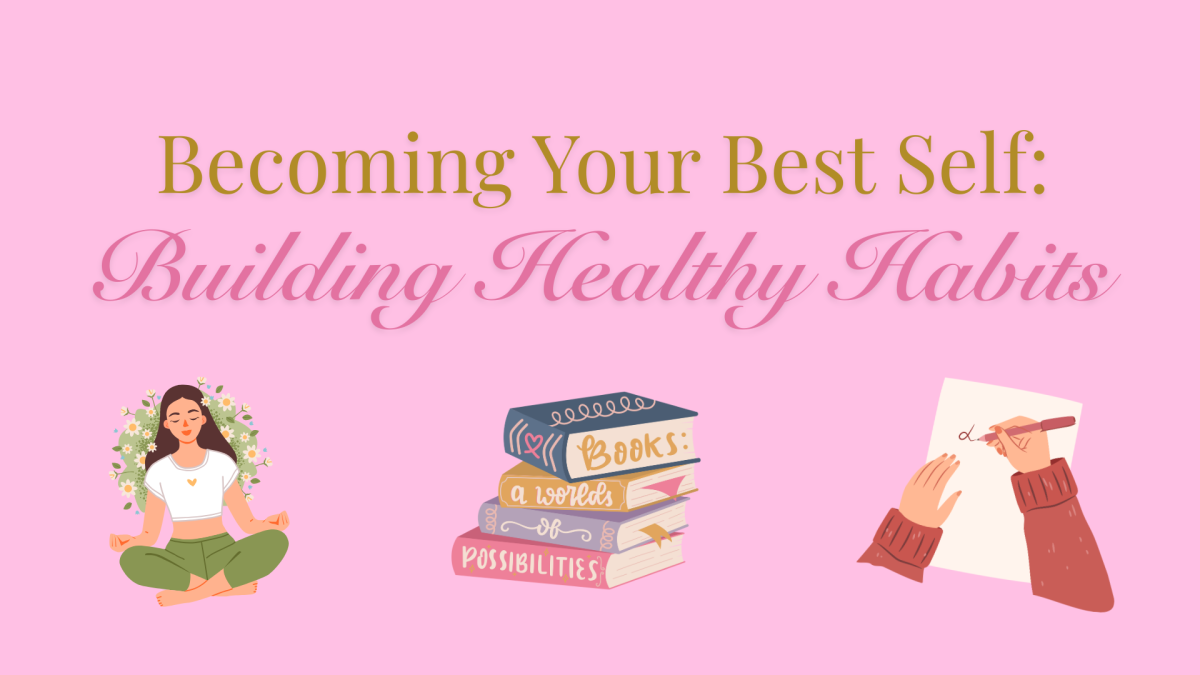My name is Diya Gandhi, and this is the first edition of my self-help series: Becoming your best self. In this section, I will be discussing healthy habits.
Over the past few years, I have learned how crucial habits are. The little things, from the time we wake up, to the time we go to sleep, can make a huge impact on our day-to-day lives. Habits determine your future and the person you are. However, their significance is often overlooked.
To some people, habits are meaningless. These people use their phones first thing in the morning without realizing how detrimental it is. These people regularly push assignments aside until they have a pile of missing work. These people continuously eat unhealthily and don’t consider how it is affecting them.
RCHS school counselor, Tyra Little, believes that healthy habits are essential for students.
“Healthy habits are important for your overall well-being, as they impact you on many different levels–physically, emotionally, and spiritually,” Little said.
The first step of creating new, healthy habits is recognizing your harmful habits and examining which of these you must remove from your life.
For example, checking your phone first thing in the morning, as mentioned earlier. First, recognize that this habit only starts your day off on the wrong foot and makes your mind race way too early in the morning. Next, you can slowly withdraw, replacing this screen time with something healthier, such as journaling, picking up a book, or meditating.

In order to create healthy habits, you must motivate yourself, as well as develop self-control and self-discipline. Unfortunately, you cannot rely on motivation, so the only way to break a habit is to consistently push yourself.
Breaking a habit is hard. Not just emotionally, but also scientifically.
Michigan Psychological Care states that, “Changing bad habits can be difficult, thanks to the comfort and familiarity we feel within our routines and rituals.”
Our brains naturally love regularity. So when we try to change our schedules, we receive a sense of discomfort and anxiety. This is totally normal and just a part of growing. Becoming someone you haven’t been before is uncomfortable, but once you push through the discomfort, you will be set up for success.
Here are some examples of unhealthy habits you may have.
Excessive screen time is a very common unhealthy habit. Particularly, excessive social media use. Due to the normality of this nowadays, most people don’t realize how deleterious it can be.
As someone who used to constantly use social media, I have learned over time that it can certainly be beneficial when used as a form of self-expression, but that it can become impractical when used with the intention of curing boredom or loneliness.
If you use your phone to doomscroll when you’re bored, to fixate on other people’s feeds when you feel lonely, or as a distraction from your everyday life, you may be in need of setting limits and developing healthier habits.
Personally, I found that deleting mostly all social media worked for me, so I could have more time to focus on life outside of the screen. However, if this feels like a big step, begin by setting screen time limits and searching for new hobbies. Healthy habits look different for everyone.
Another very unhealthy habit is not getting enough sleep. While this may be hard for many people due to school, work, sports, and an abundance of homework, getting good sleep is the most important factor when it comes to staying healthy. Make it a habit to prioritize your well-being by sleeping earlier.
According to The Centers for Disease Control and Prevention, good sleep “reduces stress, improves your mood, and improves your attention and memory to better perform daily activities,” which is why efficient sleep is essential for attentiveness in all areas of life.
Remember that replacing your old habits takes time. Be patient with yourself, and understand that building healthy habits is a process. Your future self will thank you!








